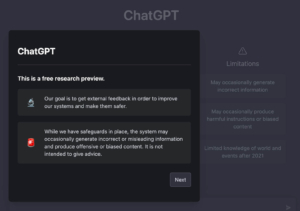As a private practice owner or a therapist working for a larger practice, you know having an online presence is important. With everything becoming more digitized, having a website that has up-to-date information and resources along with possibly having social media can help you reach more clients. However, having a super informational website, even with the best keywords, is insufficient. You also need content.
This is where blogging comes into play! Blogs have so much value when it comes to SEO marketing. They allow you to provide helpful, informative content that can be used as resources for your current clients but also potential ones. These blogs can also help to boost your website’s SEO ranking by helping search engines, like Google, to recognize that you are knowledgeable about your field. In this blog, we will talk more about why blog posts matter so much in SEO marketing for therapists.
What Exactly is SEO Marketing for Therapists?
SEO marketing is a way for therapists to optimize their websites and content, such as blogs and service pages, to make them rank higher on search engine result pages, think Google! Search engines have algorithms that they use to analyze websites and their content to determine what is the most relevant to search inquiries being made by users.
This is why it is important for therapists to invest in SEO marketing for their practice, or themselves. Having SEO training or having an SEO Specialist optimize your website with relevant keywords, and helpful, targeted content can make the difference in making sure your practice and services are more visible on the first few pages of the search engine’s result pages. Especially when it comes to potential clients being the ones searching for services that you provide.
Why Do Blog Posts Matter So Much in SEO Marketing For Therapists?
Blog posts are a multi-faceted SEO tool that can help establish your credibility and your visibility. Your blogs can establish your credibility and that you are an expert in your field. Having blogs on many topics that revolve around your services, questions people may ask Google or in therapy, as well as any other topics that revolve around mental health and what you are passionate about can make the difference. The difference between you being found versus another therapist.
Your blogs, whether written by you, an intern, a colleague, or a copywriter, can be written with keywords incorporated. This will help Google or another search engine to identify that your blog is relevant to what people are searching for. It will also boost your credibility for those keywords as you have service pages about them and now you are writing in-depth blogs about the topics as well.
Additionally, these blogs, putting purely SEO aside, can help potential clients find you. They can look on Google for resources about anxiety, burnout, or even being a highly sensitive person then find your blogs. When potential clients find your blog and read them, it can help build that connection between a client and therapist. One that is based on information, facts, and trust. They are using your blog as a resource to calm their fears at the same time as getting to know you as a therapist and your practice.
As a Therapist, This is What You Should Include in Your Blog  Posts
Posts
Writing blogs can feel easy for some as writing can come naturally as talking about the weather, while for some it can be a challenge. No matter if writing is a struggle for you or not, there are some key elements that should always be included in SEO marketing for therapists.
Relevant Keywords
The keywords that you include in your blogs need to be relevant to what you are writing about but also to what your niche is. Otherwise, you can write about these keywords but they will not be helping you if you don’t regularly write about them or provide this service. Google will see that you know something about something but that you’re not an expert on this topic. It would prefer to show another therapist’s website that is an expert on that topic or service.
Call to Action
Have you ever read a blog by someone knowing they want you to do something as a result of reading it? That is a call to action! However, if you don’t include it in your writing, your potential client is not going to know what to do or how to go about setting up an appointment. So, more than likely, they will move on. Therefore, include a call to action in your blog! Tell them what their next step should be.
Make sure to tell them how to reach you and what the steps in the process of beginning the therapy are. Do you offer a 15-minute free consultation? Do you have a form to fill out? How do they reach you if they have questions? Include this information so your potential clients know exactly what to do when they feel inspired to do it!
Optimize Your Blog Posts
Optimization is a must. When you’re writing your blogs you can try to keep keywords and SEO in mind, but for some, the words just flow from your brain to the page. In moments like those, there is no sense in forcing yourself to add these elements. However, that doesn’t mean you let yourself off the hook afterward! Reviewing your writing and adding SEO keywords and location elements can help your blog bring a valuable SEO element to your website and content.
I mean, you are taking the time to write these blogs or outsource them, so you definitely want to make sure they are reaching the right people. You also want to make sure they are drawing these potential clients in! Having the SEO element makes sure it reaches your target audience in their search engine results and in the areas you are targeting.
How Often Should Therapists Post Blog Content?
There is not a one-size-fits-all answer to this question. It depends on multiple factors: what your goals are, where you are located, and your target audience. Plus, do you have the time? There are questions and factors you need to keep in mind. At Simplified SEO, we tell our clients that at a bare minimum, they need to write or post two blogs a month to keep their SEO maintained.
However, to increase it, it needs to be more than this. Especially, if you are wanting to increase your client load, and are in a more competitive area that is very concentrated with other therapists, and you want to be at the top of the list. In these cases, we recommend a blog or two a week.
This May Seem Crazy, But it is in fact, Doable!
For example, do you have interns? Have them write some of your blogs! Do you have a colleague that loves to write? Utilize them and their passion! If you have time, try writing some blogs in your spare time about your services, questions that come up in therapy, or something you feel potential clients need to know. But, if you don’t have time, look into outsourcing by looking into a copywriter.
I suggest these options because having and maintaining a consistent blog schedule helps Google recognize that you are an expert in this area. This then leads Google to make your website more visible when potential clients search for providers in your area. Leading them to find your blogs, your services, and ultimately, YOU!
Blog posts matter so much in SEO marketing for therapists because they ultimately help boost your SEO and help your potential clients find you. Plus, they are great resources to refer clients or even potential clients to when they have questions about topics you are an expert in! Blogging is powerful, and it being combined with SEO tactics is even more powerful. Use that power to reach your ideal clients and grow your business!
So Let’s Get Started Growing Your SEO Ranking with SEO Marketing for Therapists
At Simplified SEO Consulting, we want to support you with your blogs and SEO marketing for therapists. We put together a series of SEO packages to help you with your SEO journey. No matter what stage you are in, from starting out to already having a well-optimized website but needing help with creating content. By investing in your website you are also investing in your and your practice’s future. Want to learn about SEO? Sign up for our SEO Course for Therapists and learn how to use the power of blogs and SEO to reach more clients and grow your practice! Or want to outsource it? Check out our SEO Consulting packages here and apply to work with us! Ready to get started?
- Please apply to work with us
- Learn about our team
- Begin utilizing the power of SEO marketing for therapists!
Other SEO Services At Simplified SEO Consulting
If you feel as if you have blogging handled or are outsourcing it, there are other services you can use as well! We offer options such as our 12-week training, small group intensives, and courses. Our strategy session can be a great option if you need support getting started with SEO or doing a site move or redesign. These can also be helpful to find better keywords, evaluating your current SEO performance, and more. Or, if you’re ready to work with a passionate and skilled team, our Done for You Program may be a great following approach.
About the Author:
As an SEO Content Specialist at Simplified SEO Consulting, Lynsey has a passion for creating exceptional content that reflects her clients’ unique brand voice and practice. With a focus on mental health-related topics, she understands how high-quality content can improve therapists’ search engine rankings and attract their ideal clients. Lynsey’s ultimate goal is to utilize her copywriting expertise to help therapists maximize their return on investment. Through her work, she takes pride in helping therapists learn more about blogs and how they can be powerful tools in SEO marketing.
Apply to work with us if you’re ready to see how Simplified can serve you!












 Optimizing your private practice website for SEO
Optimizing your private practice website for SEO Creating content around your therapy niche and speaks directly to your ideal client
Creating content around your therapy niche and speaks directly to your ideal client









 for Blog Writing
for Blog Writing
 Pros of Using AI Such as ChatGPT to Write Blog Posts:
Pros of Using AI Such as ChatGPT to Write Blog Posts:
 A Sample Copywriting Plan for a Private Pay Psychiatry & Medication Management Practice
A Sample Copywriting Plan for a Private Pay Psychiatry & Medication Management Practice


